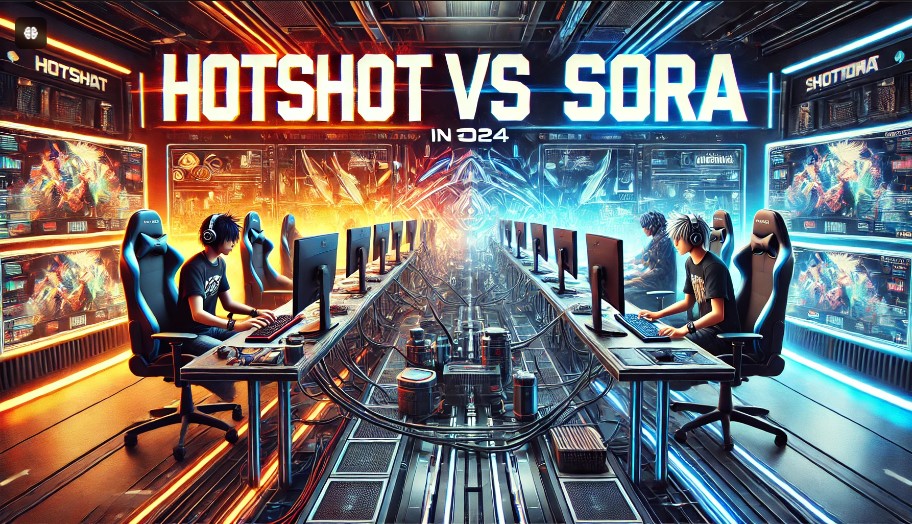AI in Healthcare: Delivering Superior Care

Introduction:
Unlocking the Potential of AI in Healthcare: Innovations in Patient Care and Diagnostics: Artificial Intelligence (AI) is reshaping the healthcare industry, bringing transformative changes that were once the realm of science fiction.
From diagnosing diseases with unparalleled precision to streamlining hospital operations, AI is revolutionizing how we approach health and wellness.

In recent years, AI’s integration into healthcare has delivered remarkable outcomes: faster diagnoses, reduced human error, and improved access to quality care. Imagine AI tools identifying early signs of cancer missed by routine screenings or personalized treatment plans tailored to an individual’s genetic profile. These innovations are no longer distant possibilities—they are happening now.
With global healthcare systems facing challenges like rising costs, workforce shortages, and increasing patient demands, AI offers solutions that are not just innovative but essential. By combining AI’s computational power with healthcare professionals’ compassion, we are stepping into an era where healthcare is more precise, efficient, and accessible.
This article explores how AI revolutionizes healthcare, highlights its groundbreaking applications, and addresses the challenges we must overcome to harness its full potential. Dive in to learn why AI is more than a tool—it’s a game-changer for the future of medicine.
AI in Healthcare: Transforming the Future of Diagnostics
Artificial Intelligence is revolutionizing medical diagnostics, offering tools that complement human expertise and push the boundaries of what’s possible in healthcare. By analyzing vast datasets and detecting patterns that may elude even the most trained professionals, AI is becoming a trusted partner in improving patient outcomes.

- Early Detection of Diseases
AI is redefining early diagnosis, especially in areas like oncology and cardiology, where timing is critical. For instance, AI algorithms are capable of identifying breast cancer in mammograms that traditional screenings might miss. These tools analyze thousands of data points in seconds, spotting subtle indicators that would otherwise go unnoticed. - Enhancing Imaging Analysis
Medical imaging powered by AI is making diagnostic processes faster and more accurate:
• In radiology, AI can pinpoint abnormalities in X-rays, MRIs, and CT scans, enabling radiologists to make confident diagnoses.
• In ophthalmology, AI tools like Google’s DeepMind identify diabetic retinopathy with an accuracy comparable to specialists. - Personalized Diagnoses
AI goes beyond identifying diseases—it personalizes diagnoses based on an individual’s medical history, genetic data, and lifestyle factors. This level of precision ensures patients receive treatments tailored specifically to their needs, increasing the likelihood of positive outcomes. - AI in Predictive Healthcare
Predictive analytics, powered by AI, is helping doctors anticipate potential health risks before symptoms manifest. For example:
• AI systems can flag patients at risk of heart attacks by analyzing patterns in EKGs.
• Machine learning models predict which patients may develop complications post-surgery, allowing preventative care.
AI in Healthcare: Driving Better Patient Outcomes
Beyond diagnostics, Artificial Intelligence is transforming the way patients experience healthcare, making care more accessible, efficient, and personalized. By automating repetitive tasks, optimizing treatment plans, and even providing virtual care, AI ensures that patients receive timely and effective support tailored to their unique needs.

- Personalized Treatment Plans
AI is enabling precision medicine by analyzing patient data such as genetics, lifestyle, and medical history to recommend tailored treatments. Unlike traditional approaches, AI-driven insights ensure:
• Optimized drug prescriptions, reducing trial-and-error methods.
• Better management of chronic diseases through real-time monitoring and adjustments. - Virtual Health Assistants
AI-powered virtual assistants are transforming patient interaction and engagement:
• Tools like chatbots provide 24/7 guidance on symptoms, medication reminders, and appointment scheduling.
• AI applications like Woebot support mental health by offering cognitive behavioral therapy (CBT) in real time. - Improved Accessibility Through Telemedicine
AI-driven telemedicine platforms are bridging the gap for underserved communities:
• Patients in remote areas can access high-quality care through virtual consultations.
• Natural language processing (NLP) tools enable multilingual and accessible communication for diverse populations. - Streamlined Hospital Operations
AI enhances efficiency in hospitals, benefiting patients and providers alike:
• Predictive tools manage patient flow, ensuring that emergency departments and intensive care units remain optimized.
• Robotics in logistics and surgery reduce waiting times and enhance precision.
AI in Healthcare: Innovations in Research and Drug Development
Artificial Intelligence is revolutionizing medical research and drug development, streamlining processes that traditionally took years or even decades. By analyzing vast datasets, identifying patterns, and simulating outcomes, AI is not only speeding up research but also making it more cost-effective and precise.

- Accelerating Drug Discovery
AI is transforming how new drugs are discovered and tested:
• Faster Candidate Identification: AI algorithms can analyze molecular structures and identify promising drug candidates in a fraction of the time required by traditional methods.
• Predicting Drug Efficacy: Machine learning models simulate how drugs will interact with the human body, reducing the need for lengthy trial-and-error processes.
• Repurposing Existing Drugs: AI identifies new uses for existing medications, offering faster solutions for emerging health crises, as seen during the COVID-19 pandemic. - Revolutionizing Clinical Trials
AI optimizes clinical trials by addressing key inefficiencies:
• Patient Recruitment: AI analyzes patient records to match individuals with trials based on eligibility criteria, increasing enrollment rates.
• Real-Time Monitoring: Wearables and AI systems collect real-time patient data, providing researchers with continuous feedback on drug efficacy and side effects.
• Predictive Analysis: AI predicts trial outcomes, helping researchers adjust parameters to improve success rates. - AI in Genomics
AI is unlocking the secrets of the human genome, enabling personalized treatments and therapies:
• Tools like DeepVariant analyze genetic sequences to identify mutations linked to diseases.
• AI-powered platforms help researchers understand the role of genes in conditions like cancer, diabetes, and rare diseases, paving the way for targeted therapies.
AI in Healthcare: Overcoming Challenges in Implementation
While Artificial Intelligence is revolutionizing healthcare, its integration comes with significant challenges. Addressing these issues is critical to ensuring that AI-powered solutions are effective, ethical, and widely accessible. From data privacy to regulatory hurdles, these obstacles must be navigated carefully to unlock the full potential of AI in healthcare.

- Data Privacy and Security
The foundation of AI in healthcare is data—but managing sensitive patient information raises critical concerns:
• Data Breaches: Cybersecurity threats can expose confidential health records, undermining trust in AI systems.
• Compliance Issues: Healthcare organizations must navigate regulations like HIPAA (in the U.S.) and GDPR (in the EU), ensuring data is collected, stored, and used ethically.
• Ethical Data Use: Patients need transparency about how their data is being used, with safeguards to prevent misuse. - Bias in AI Models
AI systems are only as unbiased as the data they are trained on:
• Healthcare Inequities: AI models trained on incomplete or biased datasets may perpetuate disparities, especially for underrepresented groups.
• Diagnosis Errors: Biases in training data can lead to misdiagnoses, particularly in diverse populations where symptoms may manifest differently.
• Ongoing Mitigation: Regular audits and diverse datasets are essential to minimize biases. - Integration with Legacy Systems
Adopting AI in healthcare facilities is a logistical challenge:
• Technical Barriers: Many hospitals and clinics rely on outdated systems that are incompatible with modern AI tools.
• Cost of Upgrades: Upgrading infrastructure to accommodate AI technologies often requires significant financial investment.
• Staff Training: Healthcare professionals need training to use AI tools effectively, ensuring adoption without resistance. - Ethical Dilemmas
AI’s growing role in decision-making raises complex ethical questions:
• Accountability: If an AI system makes an incorrect diagnosis or treatment suggestion, who is responsible—the developer, the healthcare provider, or the AI itself?
• Autonomy vs. Oversight: Balancing AI’s autonomy with human oversight is crucial, especially in high-stakes scenarios like surgery or emergency care. - Regulatory and Legal Challenges
Regulations struggle to keep pace with rapid AI advancements:
• Lagging Frameworks: Current healthcare regulations often don’t account for the complexities of AI systems, leading to inconsistencies.
• Global Standards: Establishing international guidelines for AI in healthcare is challenging but essential for global collaboration.
AI in Healthcare: Future Trends and Innovations
The future of healthcare is undeniably intertwined with Artificial Intelligence. As technology evolves, AI is poised to revolutionize patient care, medical research, and healthcare delivery on an unprecedented scale. From smarter algorithms to global collaboration, the trends shaping AI in healthcare today are laying the foundation for tomorrow’s breakthroughs.

- AI-Powered Preventive Healthcare
The shift from reactive to preventive healthcare is gaining momentum, with AI leading the charge:
• Predictive Analytics: AI systems analyze health data to identify risks and recommend interventions before conditions escalate.
• Wearable Technology: Devices like smartwatches and health trackers, integrated with AI, monitor real-time metrics to alert users and physicians to early warning signs.
• Chronic Disease Management: AI-powered platforms help patients manage conditions like diabetes and hypertension through personalized care plans and real-time monitoring. - AI in Surgery
AI is transforming surgical procedures, enhancing precision and outcomes:
• Robotic-Assisted Surgery: AI-powered robots perform minimally invasive procedures with unparalleled accuracy.
• Pre-Surgical Planning: AI algorithms analyze patient data to optimize surgical plans, reducing risks and improving recovery times.
• Real-Time Feedback: During surgery, AI systems provide surgeons with real-time data and predictive insights to ensure the best outcomes. - Advanced Drug Development
AI’s role in drug discovery is expanding with innovations like:
• AI-Driven Molecular Modeling: Algorithms simulate millions of molecular interactions to identify drug candidates faster than ever.
• Real-Time Clinical Trial Adjustments: AI monitors trials and recommends changes to improve success rates and patient safety.
• Vaccines on Demand: AI accelerates the development of vaccines for emerging diseases by analyzing viral genomes in record time. - AI-Enhanced Telemedicine
Telemedicine is evolving beyond virtual consultations:
• AI Diagnosticians: Patients can upload symptoms and test results for AI-driven preliminary diagnoses, reducing wait times.
• Mental Health Support: AI chatbots and virtual therapists offer round-the-clock mental health care, making support accessible and affordable.
• Remote Surgery Assistance: AI-powered tools enable surgeons to guide procedures remotely, improving healthcare access in underserved areas. - Global Collaboration and Standards
The future of AI in healthcare will rely heavily on international collaboration:
• Shared Datasets: Governments and organizations will share anonymized health data to improve AI accuracy and inclusivity.
• Global AI Standards: Establishing universal guidelines will ensure ethical AI deployment across borders.
• Cross-Disciplinary Teams: Teams of technologists, healthcare providers, and ethicists will work together to design AI systems that prioritize human well-being. - Ethical AI for Patient-Centric Care
Ethical AI will remain at the forefront of healthcare innovation:
• Explainable AI (XAI): Systems will become more transparent, allowing patients and providers to understand how decisions are made.
• AI Alignment with Values: Developers will focus on aligning AI systems with human values, ensuring trust and accountability.
conclusion:
AI in Healthcare: Shaping a Healthier Future: AI in Healthcare is revolutionizing medicine by transforming diagnostics, enhancing patient care, and accelerating drug discovery.With its ability to analyze vast datasets, predict outcomes, and deliver personalized solutions, AI in Healthcare is improving accessibility and care quality worldwide.
Despite challenges like data privacy and biases, collaboration among stakeholders is essential to ensure ethical and equitable AI systems. The future of AI in Healthcare promises early disease detection, precision treatments, and accessible care for all. As innovation continues, AI in Healthcare will redefine global health outcomes, driving a transformative era in medicine.








